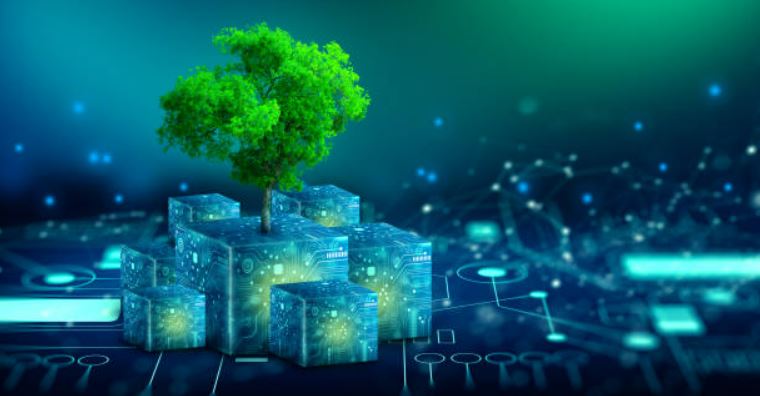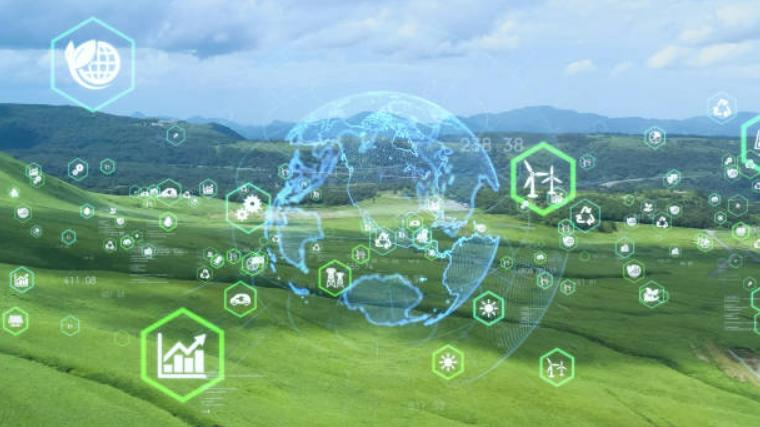
Green tech aka green technology and green energy solutions play a pivotal role in addressing environmental challenges and advancing sustainability efforts globally.
From renewable energy sources like solar, wind, and hydroelectric power to energy-efficient technologies in buildings and transportation, green tech aims to reduce carbon footprints and minimize reliance on fossil fuels.
Innovations in battery storage, smart grids, and electric vehicles are revolutionizing how energy is generated, stored, and utilized, fostering a cleaner and more sustainable future.
By promoting energy conservation, reducing greenhouse gas emissions, and promoting sustainable practices, green tech not only mitigates climate change but also enhances resilience against environmental risks.
Green Tech
Also known as green technology or sustainable technology.
The development and application of products, services, and processes that use renewable materials and energy sources, reduce emissions and minimize their impact on the environment.
The goal of green tech is to create sustainable solutions that address environmental challenges, promote energy efficiency, and contribute to the overall well-being of the planet
Key Concepts of Green Tech
Renewable Energy
- solar,
- wind,
- hydroelectric,
- geothermal, and
- biomass energy.
Energy Efficiency
Focuses on improving energy efficiency in various sectors, from buildings and transportation to industrial processes. Energy-efficient appliances, LED lighting, smart thermostats, and hybrid vehicles contribute to reduced energy consumption.
Sustainable Materials
Use of sustainable materials and eco-friendly manufacturing processes e.g.: biodegradable packaging, recycled materials, and materials with a reduced carbon footprint.
Waste Management, Recycling and Conservation
Green Buildings
Sustainable architecture and construction techniques create energy-efficient, environmentally friendly buildings. Passive solar design, green roofs, and advanced insulation contribute to reduced energy consumption and environmental impact.
Green Transportation
- electric vehicles (EVs), and
- hybrid cars
Smart Grids
Carbon Capture and Storage
Sustainable Agriculture
- precision farming,
- organic practices, and
- vertical farming
Data and technology
Data refers to the collection, processing, and analysis of information, while technology encompasses the tools and systems used to handle and leverage that data effectively. The digital age witnessed an exponential growth in the volume and complexity of data generated daily.
Advancements in technology, e.g.: artificial intelligence (AI) and machine learning revolutionized data analysis and decision-making processes.
AI-powered systems analyze vast amounts of data, identify trends, and make predictions with remarkable accuracy. This has implications across industries, including healthcare, finance, marketing, and transportation, where data-driven insights are essential for innovation and competitive advantage.
Artificial intelligence
applied in various industries, such as
- healthcare, finance, and transportation, to improve efficiency and accuracy of decision-making processes,
- used in the development of autonomous vehicles, speech recognition, natural language processing.
Artificial intelligence (AI) refers to the development of computer systems that perform tasks that typically require human intelligence, like
- visual perception,
- speech recognition,
- decision-making, and
- language translation.
Some common applications include
- natural language processing,
- computer vision,
- robotics, and
- machine learning.
AI can raise social responsibility and be part of a more holistic view and help to create products and services which are part of the circular economy and sustainable for example the Go Green brand.
Machine learning
Advancements in
- Natural Language Processing (NLP): transformer models, like OpenAI’s GPT (including GPT-3), demonstrated remarkable performance in various NLP tasks like language translation, text generation, and sentiment analysis.
- Reinforcement Learning Breakthroughs: in playing complex games like Go and chess
- Transfer Learning and Pretrained Models: pretrained on large-scale datasets and fine-tuned for specific tasks. Allowing for efficient transfer learning and improved performance on downstream tasks with limited data.
- Federated Learning: enables the training of models across multiple devices or servers without sharing raw data, gained traction in applications like healthcare, finance, and Internet of Things (IoT).
- Explainable AI (XAI): focus on developing methods to interpret and explain the decision-making processes of machine learning models. Aims to make AI more transparent, understandable, and trustworthy. Enabling users to understand why a particular decision was made.
- Ethical Considerations: researchers and organizations actively working on mitigating biases, ensuring fairness, addressing ethical challenges associated with AI algorithms, such as privacy concerns and algorithmic accountability.
- Deployment of AI in Various Industries: including healthcare, finance, autonomous vehicles, cybersecurity, and natural language processing applications. These industries are leveraging machine learning techniques to improve efficiency, accuracy, and decision-making processes.
Blockchain
Blockchain technology is the underlying technology of cryptocurrencies like Bitcoin. Applied in various industries to improve data security and transparency. It has the potential to revolutionize industries such as finance, supply chain management, and healthcare.
Quantum computing
A rapidly advancing technology that has the potential to solve complex computational problems that are beyond the capabilities of traditional computers.
5G wireless networks
Provide faster and more reliable internet speeds, enabling new applications e.g.: self-driving cars, remote surgeries, and virtual reality experiences.
Augmented and virtual reality
Used in various industries, such as entertainment, education, and healthcare.
They have the potential to revolutionize how we interact with digital content and to create immersive experiences that can enhance learning and understanding.
Internet of Things (IoT)
The Internet of Things (IoT) refers to the network of interconnected devices. They communicate with each other and share data. This technology used in healthcare, agriculture, and transportation, to improve efficiency and decision-making processes.
Energy
Energy is the capacity to do work, transform matter, and produce motion.
Forms
Exists in various forms, including
- kinetic (motion),
- potential (stored),
- thermal (heat),
- electrical, and
- chemical, among others.
In society, it is essential for economic growth, transportation, industrial processes, and meeting everyday needs.
In physics, the capacity for doing work.
There are, moreover, heat and work— the process of transfer from one body to another. After it has been transferred, it is always designated according to its nature.
Sources
Fossil fuels, for example
- coal, oil, and
- natural gas,
have been the dominant sources for decades, but the world is increasingly shifting towards more sustainable and renewable sources.
Renewable or Green Energy
Forms
- solar,
- wind,
- hydroelectric,
- geothermal, and
- biomass,
is becoming more prevalent as concerns about climate change and environmental sustainability growth.

Greenfrastructures Creative Agency and Green Tech
A creative agency can play a crucial role in promoting and supporting green tech initiatives by leveraging its creative skills and expertise.
Here are several ways our Greenfrastructures creative agency can contribute to the green tech sector with
- Branding and Messaging
- Marketing Campaigns
- Website and Digital Presence
- Visual Content Creation
- Event and Exhibition Support
- Collaborations and Partnerships
- Educational Initiatives
- User Experience and Interface Design
- Policy Advocacy Support
- Communication Strategies
- Connect green companies with green companies, products and services